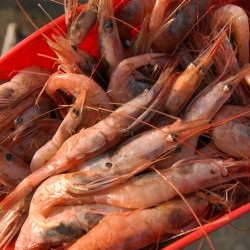
19 Oct EARTH MATTERS: EATING WELL
I’m a bit obsessed about food issues – from where our food comes from, to how we regulate it, to how we prepare it, to how we eat it. Human and environmental health, justice and ethics, sustainability, economics are integrally related to food. Food is about survival. Food is about fairness. And food is pleasure. For these reasons, I like to write about food. And right now is a particularly good time to think about what and how we eat. October 16th was World Food Day, and October 24th is National Food Day.
The priorities for Food Day, as outlined by the Center for Science in the Public Interest (CSPI), are to promote safer, healthier diets; support sustainable and organic farms; reduce hunger; reform factory farms to protect the environment; and support fair working conditions for food and farm workers. These priorities reflect the way food connects to human health, environmental health, and social justice. And these issues aren’t just relevant to crops and animal husbandry. They also affect how we deal with ocean resources.
I have written before about seafood choices, and in that article, noted that there are different reasons for selecting which fish and seafood to eat – and which not to. Just as with agricultural crops or meat, dairy, and eggs, our decisions about what seafood we eat and where it comes from can have profound effects on our health, the health of our environment, and the health of local communities. In response, some of these communities have come up with a way to provide healthy food, healthy ecosystems, and healthy economies by using an idea borrowed from the terrestrial environment – Community Supported Fisheries.
The concept of Community Supported Agriculture (CSA) has been around for about a half a century, and started up in the United States in the 1980s as a way to provide high quality, local food to community members while reducing risks for farmers as well as a way to connect consumers with producers directly. In a CSA, a customer buys a share of a farm’s products for a set price and receives a box of those products on an agreed-upon schedule; the contents of the box will vary depending on what is in season at the time. CSAs are now fairly widespread – one of the best ways of checking into CSAs is at your local farmers’ market, and you can find a list of some of the farms providing CSAs here.
 More recently, many coastal communities have seen the advent of Community Supported Fisheries. The Northwest Atlantic Marine Alliance, a fishery-focused NGO, has a list of CSFs. Many of these CSFs are fishermen cooperatives, where groups of small fishermen have organized together to support the whole local fishing community by providing local catches to local buyers. Like with a CSA, a CSF also allows consumers to connect directly with producers, and to learn more about how their seafood is being caught and who is doing the catching. Port Clyde Fresh Catch in Port Clyde, Maine, for example, was established five years ago by fishermen who wanted “…to preserve their heritage, their community and the resources they depend on, [and] the fishermen of Port Clyde have developed the Port Clyde Fresh Catch brand to bring you fresh fish and Maine shrimp harvested from the icy waters of the Gulf of Maine using environmentally conscious fishing methods.”
More recently, many coastal communities have seen the advent of Community Supported Fisheries. The Northwest Atlantic Marine Alliance, a fishery-focused NGO, has a list of CSFs. Many of these CSFs are fishermen cooperatives, where groups of small fishermen have organized together to support the whole local fishing community by providing local catches to local buyers. Like with a CSA, a CSF also allows consumers to connect directly with producers, and to learn more about how their seafood is being caught and who is doing the catching. Port Clyde Fresh Catch in Port Clyde, Maine, for example, was established five years ago by fishermen who wanted “…to preserve their heritage, their community and the resources they depend on, [and] the fishermen of Port Clyde have developed the Port Clyde Fresh Catch brand to bring you fresh fish and Maine shrimp harvested from the icy waters of the Gulf of Maine using environmentally conscious fishing methods.”
So instead of shrimp raised in massive “farms” that were created by destroying mangrove forests, where workers are underpaid and effluent, feed, and chemicals from the operation flow into the ocean, Port Clyde Fresh Catch provides local, sustainably caught products directly to consumers. At the same time, it supports the local economy and heritage. People often talk about win-win solutions; this is an example of one in practice, with wins for the producers, the environment, the consumers, and the whole community.
If you live in a coastal area, check out whether there is a CSF near you. If you don’t, keep fishing communities and the environment in mind when you eat seafood, and check out the CSAs (including several that provide meat, eggs, and/or dairy products) in your area. And when you eat, on Food Day and every day, remember the connections between your health, the environment, people’s livelihoods, and what you’re eating.


Sorry, the comment form is closed at this time.